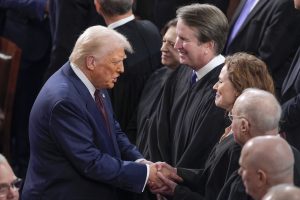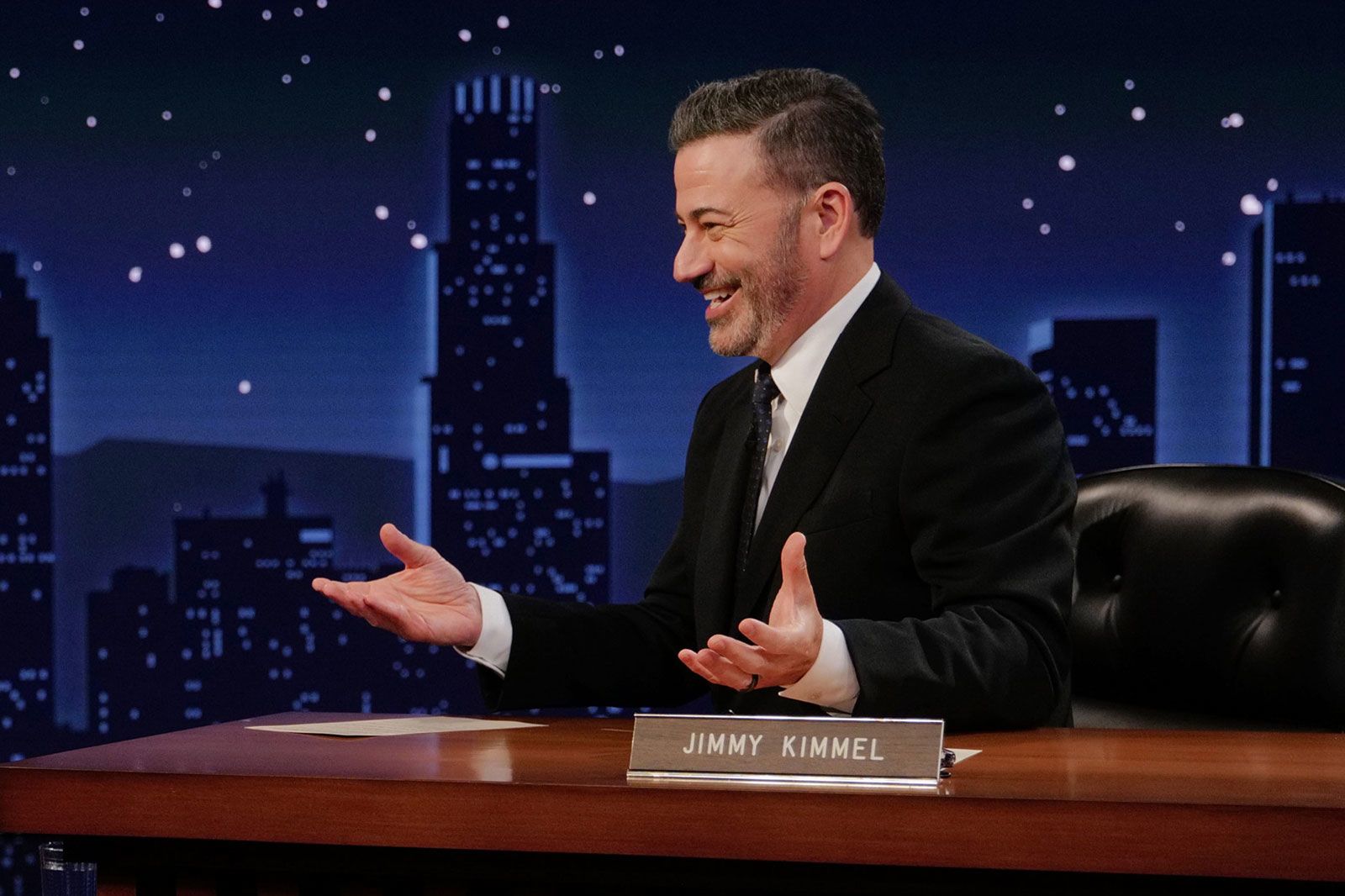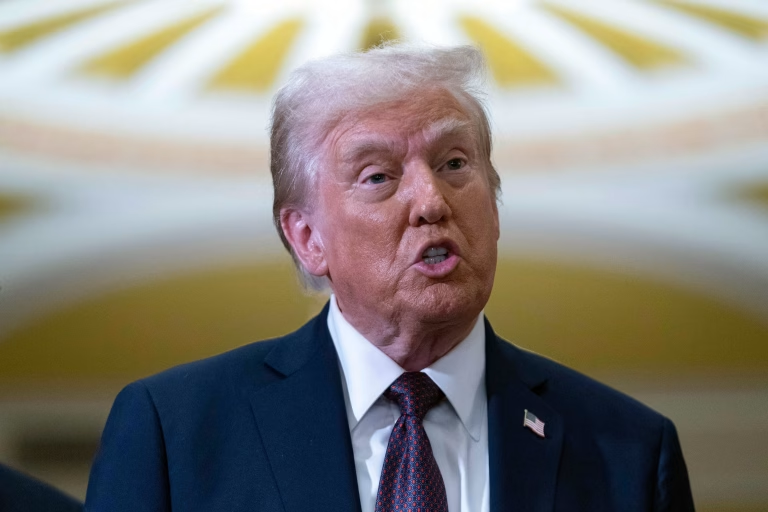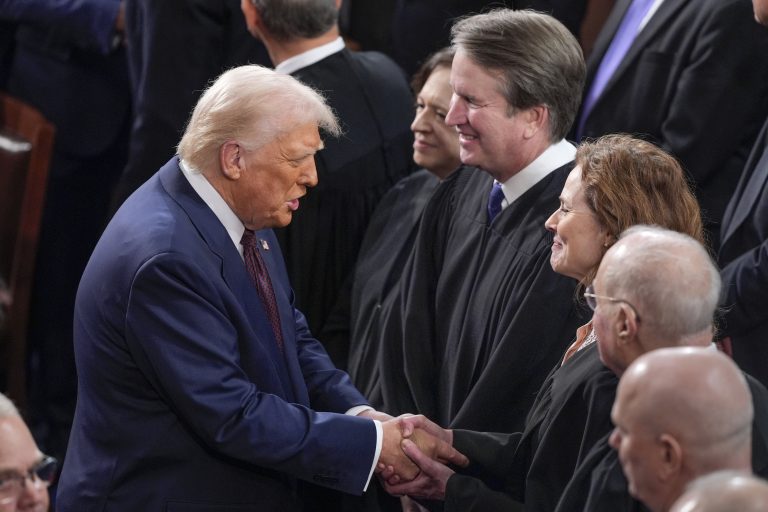For more than two decades, Jimmy Kimmel has been one of the most recognizable faces on American late-night television. Since 2003, his program Jimmy Kimmel Live! has aired on ABC, mixing comedy, celebrity interviews, and monologues that often touched on current events and politics. But now, in a move that has shocked both fans and critics, the network has announced that Kimmel’s show is being suspended indefinitely. The decision follows a fiery controversy surrounding comments Kimmel made about the tragic shooting of conservative activist Charlie Kirk.
The announcement came on Wednesday, September 17, and immediately fueled debate across the political and media landscape. To understand the significance of this moment, it’s important to look at both the circumstances of Kirk’s death and the way Kimmel’s words triggered an avalanche of criticism.
The Shooting of Charlie Kirk
On September 10, conservative commentator and activist Charlie Kirk was fatally shot in the neck while delivering a speech at Utah Valley University. The shocking incident quickly dominated headlines, not only because of Kirk’s prominence as a political figure but also because of the circumstances surrounding the attack.
The suspect, 22-year-old Tyler Robinson, was captured after a 33-hour manhunt. He now faces a series of severe charges: aggravated murder, obstruction of justice, two counts of witness tampering, two counts of obstruction of justice, felony discharge of a firearm, and commission of a violent offence in the presence of a child. Prosecutors have stated that they intend to pursue the death penalty.
Kirk’s death sparked an outpouring of grief among conservatives and Republican leaders, with many drawing attention to his close ties to President Donald Trump. The White House ordered flags to be flown at half-staff, a symbolic act that highlighted the administration’s recognition of Kirk’s influence within the movement.
Kimmel’s Controversial Monologue
Just five days after the shooting, on September 15, Kimmel addressed the tragedy during his nightly monologue. For years, he has blended political commentary with humor, often targeting Trump and his allies. But this time, many felt he crossed a line.
Kimmel began by accusing Trump supporters of attempting to “score political points” off Kirk’s death. He described the reactions of the MAGA movement as desperate attempts to distance the shooter from their ranks while still exploiting the incident for partisan gain.
“In between the finger-pointing, there was grieving,” Kimmel acknowledged, before referencing the White House’s decision to lower flags. He then played footage of Trump being asked by reporters how he was handling the loss of his friend. Instead of delivering an emotional reflection, Trump redirected the discussion to ongoing construction at the White House, including the building of a new ballroom.
Kimmel pounced on the moment, remarking sarcastically:
“Yes, he’s at the fourth stage of grief—construction. Demolition, construction… This is not how an adult grieves the murder of someone he called a friend. This is how a four-year-old mourns a goldfish.”
He continued by playing additional clips of Trump avoiding questions about Kirk’s death, once again pivoting to unrelated topics. Kimmel mocked this as “major change-the-subject mode,” suggesting that the President was intentionally distracting the public with side issues, even joking that Trump’s focus on the ballroom might be a tactic to avoid questions about the Jeffrey Epstein list.
The comedian also slipped in barbs at Vice President JD Vance and ridiculed Trump’s imagined future for the White House, joking that it might soon include slot machines and a water slide.
Backlash From Networks
While Kimmel has always been a polarizing figure, this particular monologue triggered swift consequences. ABC, which has aired his show for 22 years, announced the program would be “preempted indefinitely.” The phrasing was vague but left little doubt that the network was pulling the plug in direct response to the uproar.
Adding fuel to the fire, Nexstar Media Group—the company that owns a large number of local TV stations across the United States—also declared it would stop airing Jimmy Kimmel Live!. Andrew Alford, Nexstar’s president of broadcasting, released a strongly worded statement:
“Mr. Kimmel’s comments about the death of Mr. Kirk are offensive and insensitive at a critical time in our national political discourse.”
He added that removing the show was meant to “allow cooler heads to prevail.”
The combined decision by ABC and Nexstar effectively silences Kimmel on mainstream television for the foreseeable future, stripping him of the platform he has commanded since the early 2000s.
Trump Responds With Glee
Former President Donald Trump, never one to miss an opportunity to attack his critics in entertainment, celebrated the news with enthusiasm. Posting on Truth Social, Trump declared:
“Great News for America: The ratings challenged Jimmy Kimmel Show is CANCELLED. Congratulations to ABC for finally having the courage to do what had to be done. Kimmel has ZERO talent, and worse ratings than even Colbert, if that’s possible. That leaves Jimmy and Seth, two total losers, on Fake News NBC. Their ratings are also horrible. Do it NBC!!!”
The post underscored Trump’s longstanding hostility toward late-night comedians, many of whom have built careers lampooning him. As recently as August, Trump had warned that Kimmel and Jimmy Fallon were “next” after CBS canceled Stephen Colbert’s The Late Show.
“Fallon has no talent. Kimmel has no talent. They’re next,” Trump had said at the time, predicting their eventual downfall.
A Divisive Reaction
The suspension of Jimmy Kimmel Live! has sparked intense debate. Supporters of the decision argue that mocking the death of a public figure, particularly in such a raw political climate, crosses the boundaries of decency. Critics of Kimmel suggest his comments were not only insensitive but also politically calculated.
Others, however, see the move as a troubling example of corporate censorship. For many viewers, Kimmel’s satire, however sharp-edged, falls squarely within the tradition of political comedy that has long defined late-night television. Figures such as Jon Stewart, Stephen Colbert, and even David Letterman regularly pushed boundaries by skewering political leaders.
The difference, some argue, is the current moment: with tensions high following Kirk’s killing, broadcasters may have judged that satire had given way to insensitivity.
What’s Next for Kimmel?
As of now, ABC has not indicated when—or if—Kimmel will return to the airwaves. The use of the term “indefinite” leaves the door open, but it also provides no timeline. Industry insiders suggest that much will depend on public reaction in the weeks to come, as well as whether advertisers push for his reinstatement or continue distancing themselves.
Kimmel himself has not released a detailed statement beyond acknowledging the suspension. His silence has left fans wondering whether he plans to fight the decision, apologize, or shift toward other platforms such as streaming or podcasting.
For a host who has been on air nearly nightly for more than two decades, the absence is conspicuous. In the modern late-night landscape—already contracting after Colbert’s cancellation and ongoing speculation about other shows—Kimmel’s removal leaves only a handful of familiar names.
A Cultural Flashpoint
The controversy surrounding Jimmy Kimmel highlights the increasingly fragile balance between comedy, politics, and public discourse in America. Late-night television has always been a space where humor intersects with serious issues, but in an era defined by polarization, the margin for error has narrowed considerably.
Kirk’s death was a national tragedy that shook political circles. By choosing to satirize not only Trump’s response but also the broader reaction, Kimmel entered dangerous territory—territory that ultimately cost him his platform.
Whether this marks the end of Jimmy Kimmel Live! or merely a temporary pause, the fallout is a reminder that in 2025, the line between free expression and corporate responsibility is as contentious as ever.

James Jenkins is a celebrated Pulitzer Prize-winning author whose work has reshaped the way readers think about social justice and human rights in America. Raised in Atlanta, Georgia, James grew up in a community that instilled in him both resilience and a strong sense of responsibility toward others. After studying political science and creative writing at Howard University, he worked as a journalist covering civil rights issues before dedicating himself fully to fiction. His novels are known for their sharp, empathetic portraits of marginalized communities and for weaving personal stories with broader political realities. Jenkins’s breakout novel, Shadows of Freedom, won national acclaim for its unflinching look at systemic inequality, while his more recent works explore themes of identity, resilience, and the fight for dignity in the face of oppression. Beyond his novels, James is an active public speaker, lecturing at universities and participating in nonprofit initiatives that support literacy and community empowerment. He believes that storytelling is a way to preserve history and inspire change. When not writing, James enjoys jazz music, mentoring young writers, and traveling with his family to explore cultures and stories around the world.









